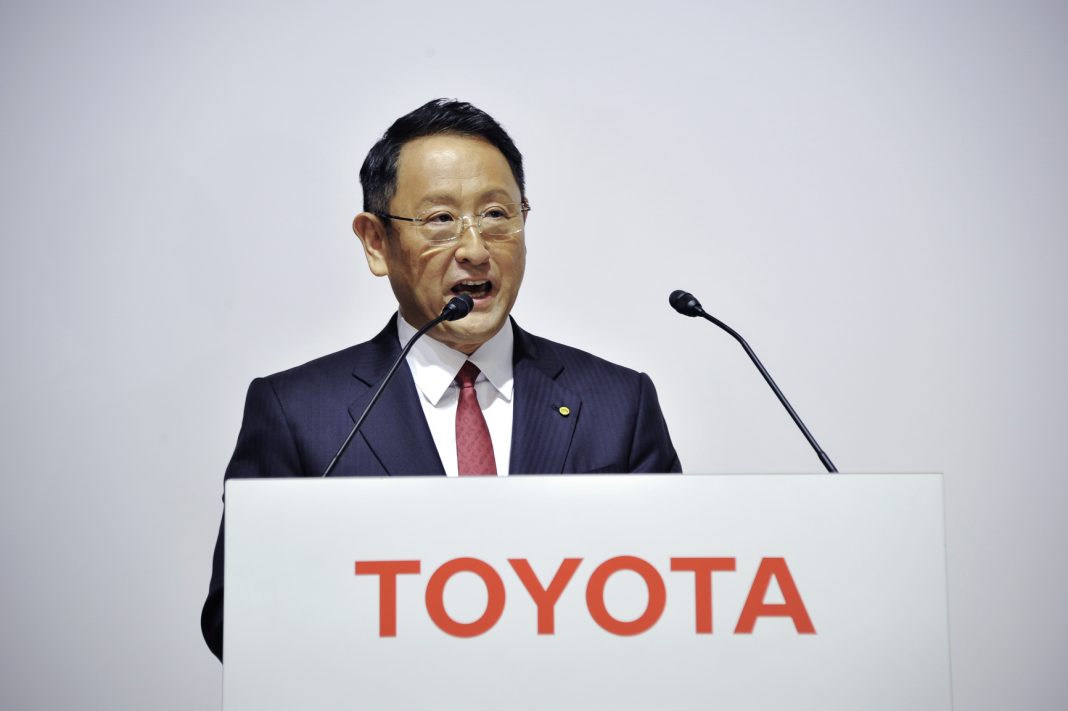The world’s best-selling automakers has now updated their full-year profit expectations after realizing a net profit increase of 50% in the third quarter of their fiscal year. Toyota Motor Corp increased their yearly earnings by 54% on the news – a surprising move as other automakers worldwide continue to fall behind in production.
After announcing a Q2 financial summary in November that forecasted modest improvement after a frightening pandemic-shaped Q1, the third-quarter earnings report generates cause for optimism when Toyota’s year end rolls around at the end of March. Operating profit rose to $9.45 billion USD by the end of Q3, and Toyota now forecasts an operating profit of around $19 billion for the full year. Amazingly, it’s a record profit for Toyota.
Vehicle sales have been stronger than anticipated, given the worldwide pandemic that continues to rage in many major markets, the US included. After dropping annual sales expectations to 8 million units after Q1, Toyota now expects to sell 9.73 million vehicles for the full 12-month period. That figure continues to be lower than the fiscal year ending March 2020 that resulted in 10.46 million vehicles sold.
Toyota shares closed at their highest level since July 2015 on the report.
Strong forecast where others are less optimistic
Toyota has maintained a vision of growth going into the next fiscal year, even as other carmakers have pulled back on expectations. The growing semiconductor chip shortage has plagued almost all carmakers in some capacity but Toyota hasn’t been affected to any noticeable degree.
Unlike other manufacturers, Toyota claims to as much as a four-month supply of chips to maintain vehicle production. That bodes will for the coming year, according to the general manager of investment research at SBI Securities, Hideyuki Suzuki, who said, “The fact that Toyota isn’t largely affected by the chip shortage now is an encouraging catalyst.”
In a briefing, Toyota’s Chief Financial Officer Kenta Kon said, “For the near term, we do not see any decrease in production volume due to the chip shortage, but we do see risks of a chip shortage.”
That’s in stark contrast to other carmakers, especially domestically. Ford has idled F-150 production due to the shortage while General Motors has shut down three plants in Kansas, Ontario, and Mexico due to the chip shortage. Stellantis’ Windsor plant is in the middle of a three-week shutdown as well.
Toyota mentions that communication with their parts suppliers regarding both near-term and long-term demands has helped them avoid a shortage, although that communication is likely to be expected from all carmakers. Why Toyota’s chips are delivered in a timely manner while others aren’t could be in question.
Resurgence for Toyota
It appears Toyota is in a healthy position with surging sales. For the first time in five years, Toyota has regained the title of best-selling carmaker, taking the ribbon back from Volkswagen who held it that whole time. With assertive sales forecasts that outpace other mainstream carmakers along with record profits, Toyota may be the carmaker to watch in the coming years.
Did you enjoy this article from Jason Unrau? Read other articles on CBT News here. Please share your thoughts, comments, or questions regarding this topic at newsroom@cbtnews.com.
Be sure to follow us on Facebook and Twitter to stay up to date or catch-up on all of our podcasts on demand.

While you’re here, don’t forget to subscribe to our email newsletter for all the latest auto industry news from CBT News.








